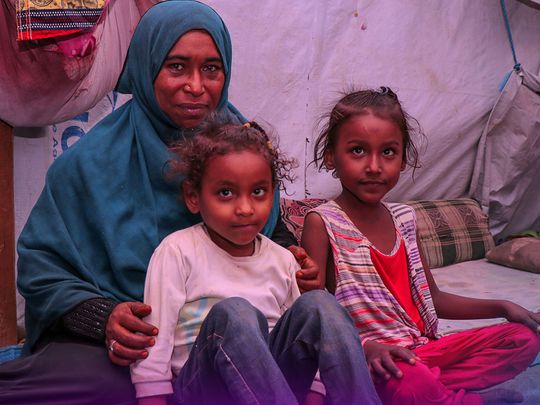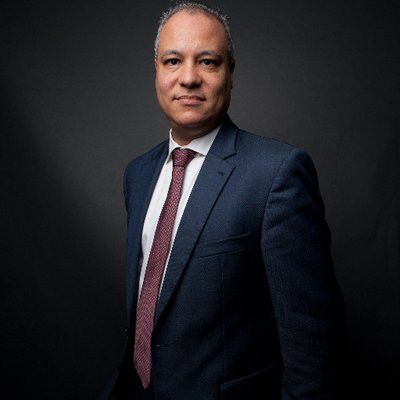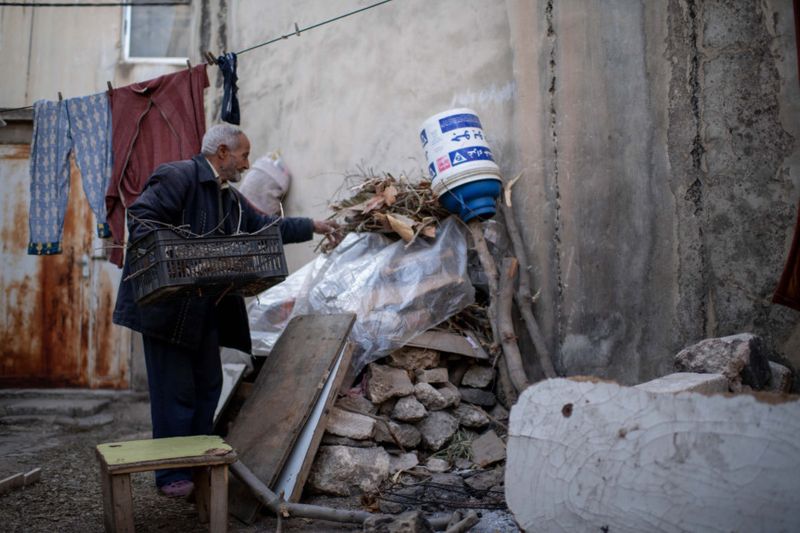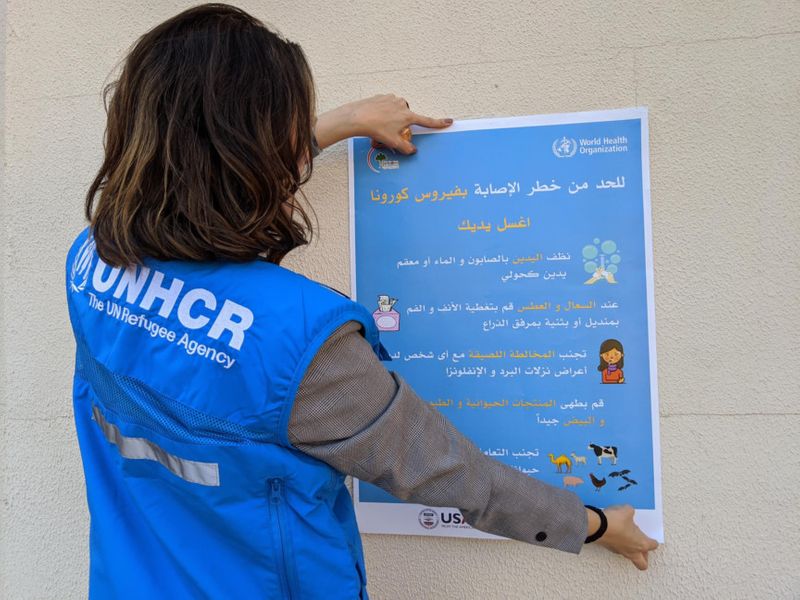
Dubai: While the entire world is still grappling with the coronavirus (COVID-19) pandemic, a more vulnerable sector – the refugees or internally displaced people – requires greater help this Ramadan.
A senior official from the UN Refugee Agency said the COVID-19 outbreak is a global challenge that does not discriminate. In an interview with Gulf News, Khaled Khalifa, UNHCR Senior Advisor and Representative to the Gulf Cooperation Council Countries, said “COVID-19 pandemic is an emergency on top of an emergency.”

“The United Nations High Commissioner for Refugees, UNHCR, is currently appealing for $255 million (Dh936 million) to urgently support preparedness and response measures among 31 countries assessed as high-risk from coronavirus in the next nine months,” he added.
“As the region is hosting some of the largest displaced populations in the world, UNHCR is dedicating over $96 million (Dh352M) from the overall appeal to support refugees and internally displaced people in Jordan, Lebanon, Syria, Iraq and Yemen,” he explained.
Dire situation in different camps
Forced to flee from their homes, the refugees have been struggling to survive and now with the threat of coronavirus, they not only need clean water, food and shelter, they also need protection from disease. Widows, orphans and the elderly are particularly in need of help.
Khalifa noted over 80 per cent of the world’s refugees, and almost all internally displaced populations, live in countries with weaker health, water and sanitation systems.

“Many live in densely populated camps or poorer urban areas. In Lebanon, home to over 950,000 refugees, where 73 per cent live below the poverty line, UNHCR is working closely with the authorities to support the expansion of existing capacity for hospitalisation and intensive care, so that all COVID-19 infected persons in need can be given treatment in a timely manner,” Khalifa shared.
“We are also in the process of developing procedures for isolation should any case arise in refugee informal settlements or collective shelters where refugees live in communities or in larger numbers,” he added.
Aside from contending with a financial meltdown, Lebanon declared a medical state of emergency on March 15. In Jordan, UNHCR is asking its Ministry of Health for the inclusion of over 746,000 refugees and asylum seekers hosted by the country in the calculation of stockpile needs of medicines, personal protective equipment, ancillary pharmaceuticals and supplies, and laboratory diagnostics.

Syria and Iraq must also contend with large numbers of refugees in fragile, highly unstable environments. Prior to the financial crisis, 73 percent of Syrian refugees in Lebanon lived below the poverty line and they also face the perilous nature of living as non-citizens, he said.
Caring and giving
“This Ramadan, UNHCR urges those observing the Holy Month to imagine the impact of an act of generosity on the lives of refugees, especially in light of the current public health crisis,” Khalifa said.
“Ramadan is a month of giving, and in no other year has our generosity meant more than this year, as we face a common challenge and support one another in overcoming this crisis.”
“Any form of donation this Ramadan will be useful in enabling refugees to make necessary purchases such as food or other basic needs in case of a lockdown, mitigating some of the negative socio-economic impacts of COVID-19 on families and communities,” he added.
The donations will help in the distribution of shelter material, core relief items and hygienic materials, as well as increase access to water, support governments with infection prevention and health-care responses, according to UN Relief Agency.
“Assistance will help mitigate the negative socio-economic impact of COVID-19 on refugees, enhance monitoring and interventions to ensure their rights are respected, and support continued learning opportunities for refugee children, including fact-based information on preventive measures such as handwashing,” Khalifa underlined.
How can UAE residents can help?
“Whether you are a UAE resident, company or foundation, you can support refugees by making a donation through our online fundraising page: https://giving.unhcr.org/en/coronavirus/ with the option of either submitting a one-time or monthly donation. Public or private companies can support through donations too, by using their communications channels to raise advocacy and by engaging their employees.” Khalifa said.
“Ramadan is a month of giving, and in no other year has our generosity meant more than this year, as we face a common challenge and support one another in overcoming this crisis,” he added.








